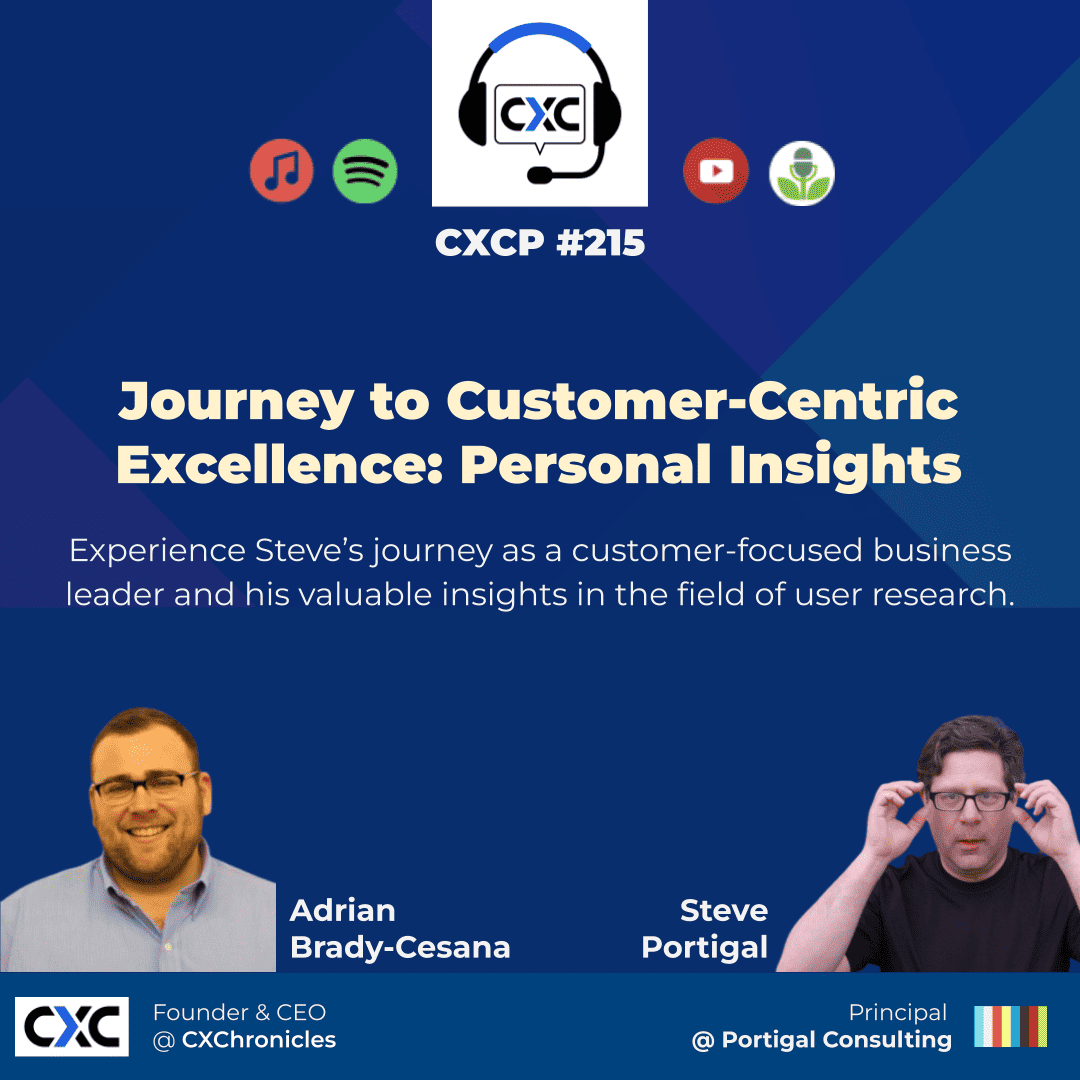Listen to Steve on the CXChronicles podcast

I had a great time speaking with Adrian Brady-Cesana on the CXChronicles podcast.
You can listen to our 40-minute conversation on the episode page, on YouTube, or embedded below, both as local file and via YouTube.
We talked about:
- Understanding the core of a user’s experience and how its originally designed
- Investing in user research operations to help scale your business
- Prioritizing what you need to learn about your users & how you can take action
- Mapping the iceberg of your customer and user experience
- Getting your team to prioritize the key CTAs that will drive innovation & growth
Excerpt:
One thing I’ve seen that to be really successful is when you pair up someone who’s great at research, which is ‘OK, I don’t know about this, I want you to explain it to me’ and someone who is great at the domain, whose job isn’t to ask questions but is to hear what doesn’t make sense about the technology or about the deployment or about the process, and that collaboration is really really sharp and has a great effect when you’re talking to customers and users. I think sometimes we’re nervous because, we want to be seen as credible, especially if it’s an actual customer. We ask for their time, we want to go talk to them…it can be really a really great triangle between, a user or customer who has who’s a practitioner of something very complex, and a person from the producer or, maker side of it, the company side, who knows the domain, and someone who knows how to listen and ask questions and follow up and facilitate this. When I see researchers getting immersed into a domain, they do build up some competency. But some of these things are decades of specificity and really kind of elusive stuff. Where there’s bandwidth for collaboration and you can bring in people with different perspectives, different domain and process expertise to create a great interview for the customer that you’re talking to. It’s a good experience to talk to a researcher and a domain expert, you can watch who they make eye contact with. I’ve had people even tell me, ‘Oh okay, you’re the question asker and you’re the person that knows that you’re the engineer.’ People can figure that out. Nobody’s pretending to be anything that they aren’t and it really can be very harmonious, but you have to create the bandwidth to support that collaboration on the team so everybody can work together to get the insights that we wanna get from the people we’re building for.